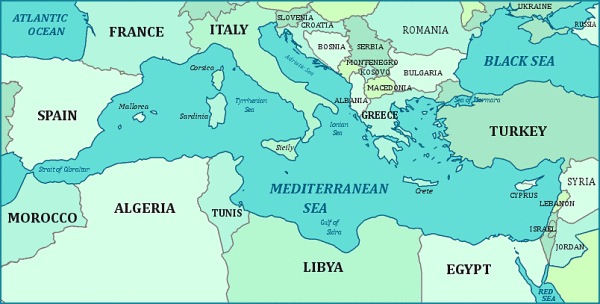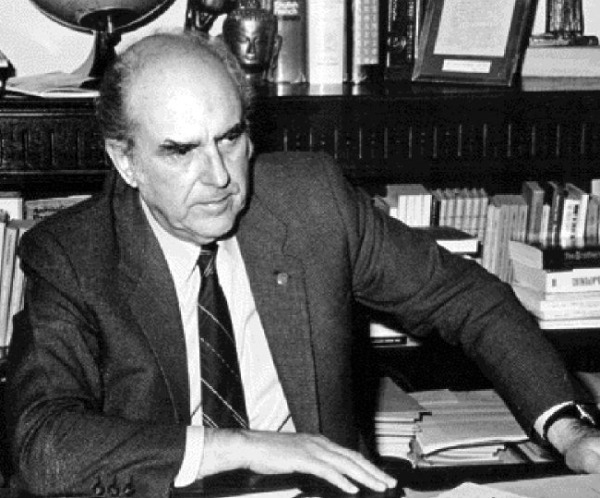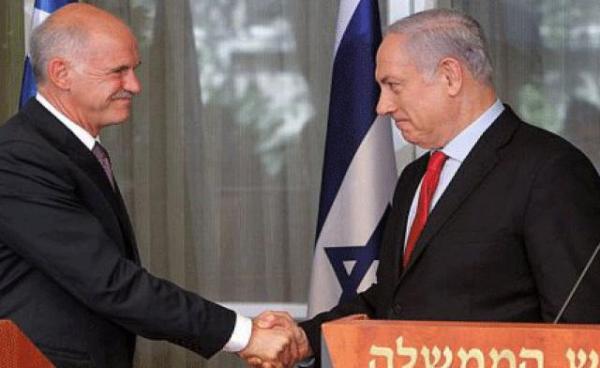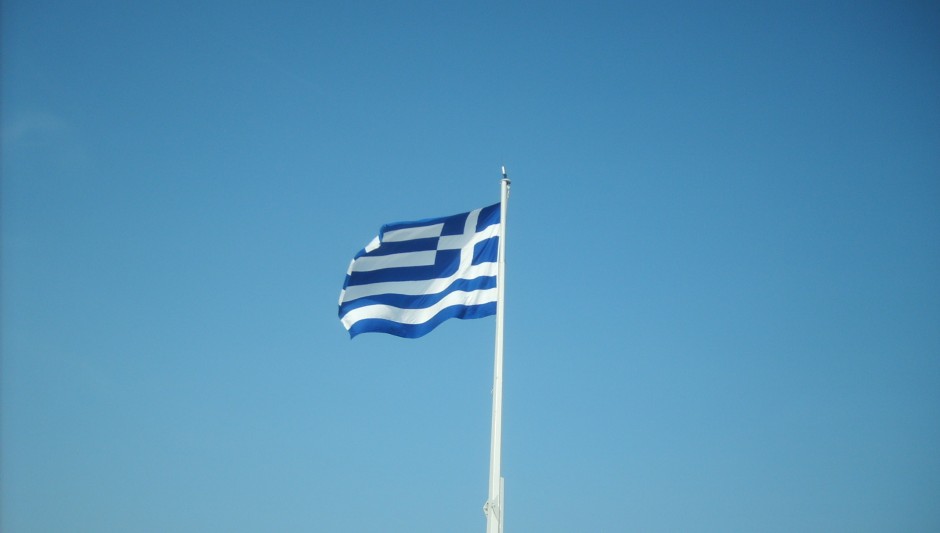A man riding a motorcycle recently attacked Israel’s embassy in Athens, spraying the building with more than 50 rounds of gunfire. Greek police believe the assailant probably belonged to a far-leftist group. Following the incident, Greek Public Order Minister Vassilis Kikilias said, “No one is going to affect the relations between Greece and Israel.”
It was a significant comment, signifying the importance that Greece attaches to its bilateral relations with Israel today. For years, Greece maintained correct but cool relations with Israel, cultivating ties with the Arab world and the Palestine Liberation Organization at Israel’s expense.

Greece’s pro-Arab policy was a function of two factors. Many ethnic Greeks lived in Arab countries, particularly Egypt, and Greece did not want to jeopardize their security. Greece had important commercial interests in the Arab world and was dependent on Arab oil supplies.
In 1947, in a bid to curry favor with the Arab bloc, Greece joined 12 other nations to vote against a United Nations plan to partition Palestine into a Jewish state and an Arab state. Later, Greece, became the first country in the European Economic Community, the precursor of the European Union, to extend full diplomatic recogniti0n to the PLO.
Greece recognized Israel after its declaration independence in 1948, but kept its relations with Israel on a low level, even refraining from inviting Israeli cabinet ministers on official visits.

Tension between Greece and Israel hit a nadir during the 1982 war in Lebanon, when the then Greek prime minister, Andreas Papandreou, likened Israel’s invasion to Nazi Germany’s genocide against the Jews of Europe.
During this period, Israel was vilified in the media, Greek dockworkers boycotted Israeli ships, the Greek Orthodox church donated food and clothing to the PLO and Papandreou’s wife, Margaret, led a march on Israel’s mission in Athens.
By no coincidence, the chairman of the PLO, Yasser Arafat, went to Greece after being forced to leave West Beirut in August 1982. In Athens, Arafat embraced Papandreou, who said, “I feel deeply moved at receiving … this great fighter for the freedom of his people.”
By about the mid-1980s, though, Greece began having second thoughts about its staunch pro-Arab stance. “Just because we oppose certain aspects of Israeli policy doesn’t mean that our bilateral relations must remain stagnant,” a Greek foreign ministry official told me in an interview, referring to Greece’s unwavering position that Israel should withdraw to the pre-1967 lines.
Basically, the reason Greece moderated its attitude toward Israel was because its pro-Arab policy had paid disappointingly low dividends. The scale of Arab investments in the Greek economy had not met Greek expectations. Arab states had cut back on Greek exports and had increased imports from Turkey. Conservative Arab countries like Saudi Arabia and Morocco had backed Turkey rather than Greece over the volatile Cyprus issue.
Greece also wanted to improve relations with the United States, Israel’s chief ally, and sought Jewish support in the Diaspora for its struggle with Turkey over Cyprus.

Papandreou, in an attempt to build trust, invited Jewish leaders to the island of Corfu, where he conferred with Edgar Bronfman, the president of the World Jewish Congress; Joseph Lovinger, the head of the Central Board of Jewish Communities in Greece, and Ephraim Evron, who had been Israel’s ambassador to the United States.
Subsequently, David Kimche, the director-general of the Israeli foreign ministry, met with Karlos Papoulias, the Greek under-secretary of foreign affairs.
These meetings were fruitful, prompting Greece to upgrade relations with Israel in trade, agriculture and culture and to send the first official Greek commercial delegation, led by the president of the Athens Chamber of Commerce, to Israel.
Nonetheless, there were bumps on the road toward an Israel-Greek rapprochement.
The Greek government did not comply with a European Parliament recommendation to establish full relations with Israel. As a result, the Israeli mission in Athens remained on the representative rather than on the ambassadorial level. Greece would not take that vital step until May 1991. Three years later, Israel and Greece signed a military cooperation pact, which would have been unimaginable a decade earlier.
With political relations having improved, due in part to the Oslo peace process and Papandreou’s death, Moshe Katsav visited Greece in 2006, becoming the first Israeli president to set foot on Greek soil.
In the meantime, the volume of trade doubled.
Israel’s evolving relationship with Greece was greatly affected by events in the Middle East. In 2009, Israel invaded the Gaza Strip, and in 2010, Israeli commandos stormed the Mavi Marmara, a Turkish ship trying to break the Israeli siege of Gaza.
Turkey, which had forged strong ties with Israel from the mid-1990s onward, condemned Israel’s invasion. In the wake of the clash on the high seas, which had claimed the lives of nine Turks, Turkey withdrew its ambassador in Tel Aviv and froze military cooperation accords with Israel.

Reading the handwriting on the wall, Israel began courting Greece seriously. Within two months of the Mavi Marmara affair, the Greek prime minister, George Papandreou, the son of Andreas, visited Israel. In August of that year, Benjamin Netanyahu paid a visit to Greece, the first Israeli prime minister to do so. In October, the Israeli and Greek air forces carried out joint training exercises in Greece. Previously, Israeli pilots had trained in Turkey, Greece’s rival.
Greece, in a gesture of friendship to Israel in 2011, thwarted a planned pro-Palestinian flotilla of ships from Greek ports to Gaza. Israel’s president, Shimon Peres, publicly thanked Greece for its assistance. Shortly afterward, Peres was invited to Greece by his Greek counterpart. Israel’s foreign minister, Avigdor Liberman, also visited Greece.
Ehud Barak, Israel’s defence minister, signed a military cooperation agreement with Greece in 2012. “We are committed to work together and deepen our relationship,” he said. Soon enough, Israel, Greece and the United States launched what would be an annual joint naval exercise in the Mediterranean Sea.
The Greek government did not express alarm when Israel attempted to mend frayed relations with Turkey in 2013. “Regardless of what Israel does with Turkey, we have a strategic relationship (with Israel) that is autonomous and has nothing to do with Turkey,” said Greece’s ambassador to Israel, Spiros Lambridis.
As if to underline the point, Greek Prime Minister Antonis Samras signed 10 cooperation agreements with Israel in 2013 during his visit covering such fields as technology, science and energy. In an implicit nod to Turkey, Samras said, “This is a partnership that excludes no one and potentially includes all peoples in our region aspiring to the same ideals of stability, security, peace and growth.”
To no one’s surprise, Israel has also courted the Republic of Cyprus, which is ruled by ethnic Greeks. In 2012, Netanyahu visited Cyprus to discuss energy issues. Enormous offshore gas deposits have been discovered in the seabed between Israel and Cyprus, and both nations have exploited these reserves.
“There is no doubt that the loss of Turkey pushed Israel in the direction of Greece and Cyprus,” Alon Liel, a former director of Israel’s foreign ministry, has been quoted as saying.
Thanks to a gradual convergence of interests, Israel and Greece, and now Israel and Cyprus, are forging mutually beneficial relations.
This piece appeared in the Times of Israel.
